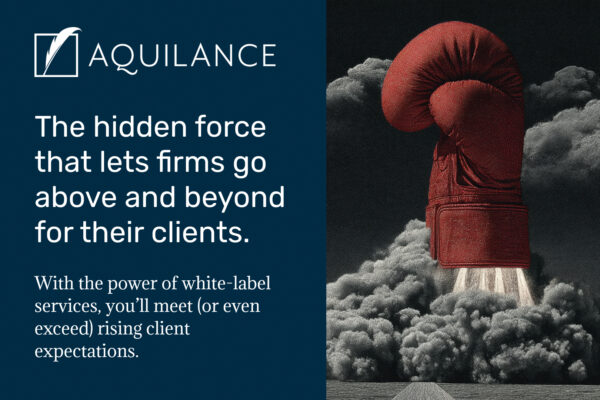From Sports Business Journal by JOE FARREN AND DEBBIE SPANDER on June 24, 2024
Imagine being the reason that your college or university sells millions of dollars’ worth of tickets, merchandise, and swag. And then not seeing a dime of it.
Until three years ago, you could only legally capitalize on your athletic abilities and brand if you played professionally — but fewer than 5% of athletes actually make it to that level. Thanks to the 2021 Supreme Court ruling in Alford (a rare 9-0 unanimous agreement), all college athletes, and some high school athletes, can now reap the financial rewards of their name, image, and likeness. And thanks to the recent NCAA settlement agreement in the House case, all student athletes may be eligible to earn money directly from their athletic departments starting in fall 2025.
We think this is very well deserved (and long overdue!). But as is the case so often in life, more money usually means more problems. Without proper financial guidance, this hard-earned cash can easily be wasted. And once it’s gone, it’s gone.
So, if you’re fortunate enough to capitalize on your NIL, here are four guidelines you should keep in mind.
1. What you receive is far less than what you earn
It’s easy to assume that because you sign a $100,000 deal with a collective or brand, you will take home all or at least most of what you earned. For this reason, we frequently see athletes who then spend a good portion of their money on expensive luxuries, thinking that they have only used part of their total earnings.
But be careful because that $100,000 is still subject to taxes, agent commissions, and other fees. Many NIL agents charge 15%-20% since all NIL deals are still considered marketing agreements and NIL agents are not yet regulated. With six-figure earnings, you are also moved into a higher tax bracket, and despite high commissions, a 30%+ tax bill could be levied on the full amount.
This $100,000 deal easily becomes $50,000 (or less). And if you spent that much (or more) while expecting a bigger cushion to be waiting for you in the bank, you may be very unpleasantly surprised.
2. Spend it wisely
A five- or six-figure deal can be a life-changing amount of money for a college athlete and their family. And it’s hard to avoid the temptation to reward your family and friends with gifts or financial support.
But it’s critical you keep this in check. If you don’t make it to the pros, which unfortunately not everyone does, this could be your primary opportunity to earn this kind of money for a while. You need to remember that athletes’ financial careers are earned in the inverse of their fans; while most people accrue money over many years, athletes often earn the most money early in their life, and need to make it last.
This is the case for NIL contracts, too. Collectives and sponsors are most willing to pay when you are a hot commodity. This could mean that unless you play professionally, the best chance for large collective and/or marketing deals is now.
We see athletes struggle far too often with this reality. The importance of developing good habits nowcannot be overstated. This includes planning for cash flow once you buy new assets (e.g., the gas it takes to fuel a luxury car or boat, furnishing and maintaining a large new house, insurance costs, etc.). The real estate taxes alone could be five figures — easily burning through any excessive reserves in cash.
Get in the habit early of saving as much of your total income as possible, and don’t buy more than what can be managed over time.
3. Higher profile = higher risks
Your newfound wealth is often well-reported, meaning that people with the worst intentions will soon try to be your best friend — and come at you with financial scams.
Be prepared to change your social media habits and be cautious of “new friends.” This may take some getting used to. Some things to enact immediately: Don’t post in real-time, only post about out-of-town travel when you are back, and don’t accept new “online friends.” Don’t provide too much identifiable information as even background details in images or videos can be used to identify locations or addresses.
4. Only work with well-established reputable advisers
Last, be careful who you trust. It’s now more important than ever to be referred to trusted advisers who can share appropriate advice. Work with financial advisers (not family) who can be neutral third parties looking out for your best long-term interests. With this in mind, a team-based approach when managing finances is a good way to ensure best interests are maintained even across service providers. We recommend separating certain responsibilities to minimize the risk of any one provider taking advantage of anyone.
Being able to keep and grow the wealth that is generated from your athletic success is awesome! But athletes as well as their agents, friends, and advisers, need to also be aware that with the financial windfalls from legal NIL, you need to form new habits both on the field and off.
Joe Farren is president of personal financial management firm Aquilance; and Debbie Spander is founder and CEO of boutique agency Insight Sports Advisors.
About Aquilance
Aquilance was founded in 1987 to address the complex financial administration needs of families and individuals of wealth. Currently serving hundreds of families, Aquilance provides a diverse suite of services which includes personal bookkeeping and billpay, consolidated accounting across multi-entity family structures and complex investment partnerships, performance reporting, ILIT administration and much more. The firm’s mission of over thirty years continues to be enriching quality of life for families by eliminating time spent on managing complex finances, and empowering effective decision making and legacy planning by delivering timely and accurate reports to clients and their advisors.
Media Contact:
Ryan Walker
R.J. Walker & Co.
ryan@rjwalkerco.com






